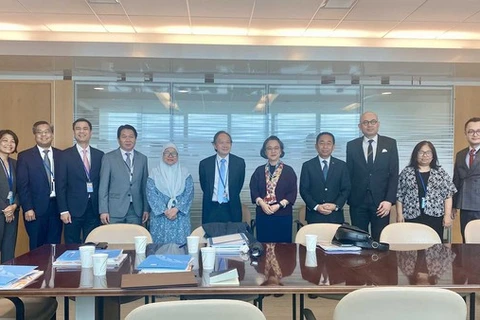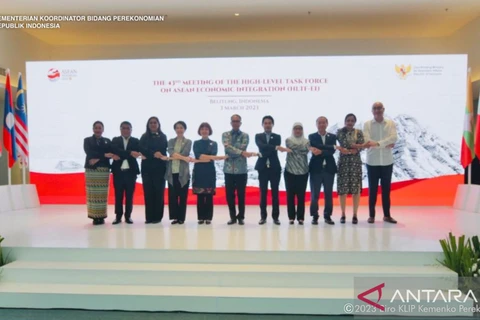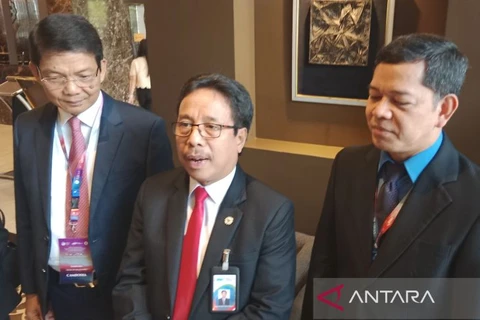 Professor Jeffrey Sachs speaks at a special talk on "Sustainability Talks: Towards a Green ASEAN" at the Queen Sirikit National Convention Centre on January 19, 2024. (Photo: khaosodenglish.com)
Professor Jeffrey Sachs speaks at a special talk on "Sustainability Talks: Towards a Green ASEAN" at the Queen Sirikit National Convention Centre on January 19, 2024. (Photo: khaosodenglish.com) Bangkok (VNA) – The Association of Southeast Asian Nations (ASEAN) needs to prioritise the quality of education and public health, implement clean energy transition, adopt sustainable agriculture practices, improve urban planning and accelerate digitalisation to achieve sustainable development.
Professor Jeffrey D. Sachs, Director of the Centre for Sustainable Development at Columbia University and President of the UN Sustainable Development Solutions Network, made the suggestions at a workshop on a green ASEAN held in Bangkok, Thailand.
He said ASEAN is among the fastest-growing regions globally as the bloc is equipped with clean energy, technology, expertise and know-how to reach sustainable development. A well-educated young generation will become a quality human resource, attracting foreign investors.
On the second priority, Sachs said the regional countries need to focus on improving their health systems because physical and mental health plays a very important role in improving productivity.
The scholar also said that ASEAN member states need to invest in the energy transition. The use of clean energy and the move towards a "zero-carbon" economy are necessary, especially in the context of global warming, natural disasters and worsening food shortages.
He acknowledged that the countries should invest in sustainable agriculture as the current agriculture sector is facing challenges from intensified water cycles, climate pressures and new pests.
Sachs held that the countries must have new agricultural strategies that are sustainable and capital-intensive, technology-intensive and information-intensive.
He also noted the importance of investing in urban infrastructure, such as public transport, social housing and green spaces.
Finally, the professor affirmed that digital platforms and transformation are necessary because these are powerful tools that the countries need to have at hand. He also shared that if all ASEAN member states implement these priorities, or more broadly all countries of the Regional Comprehensive Economic Partnership (RCEP), the whole Asia-Pacific region will benefit./.






















